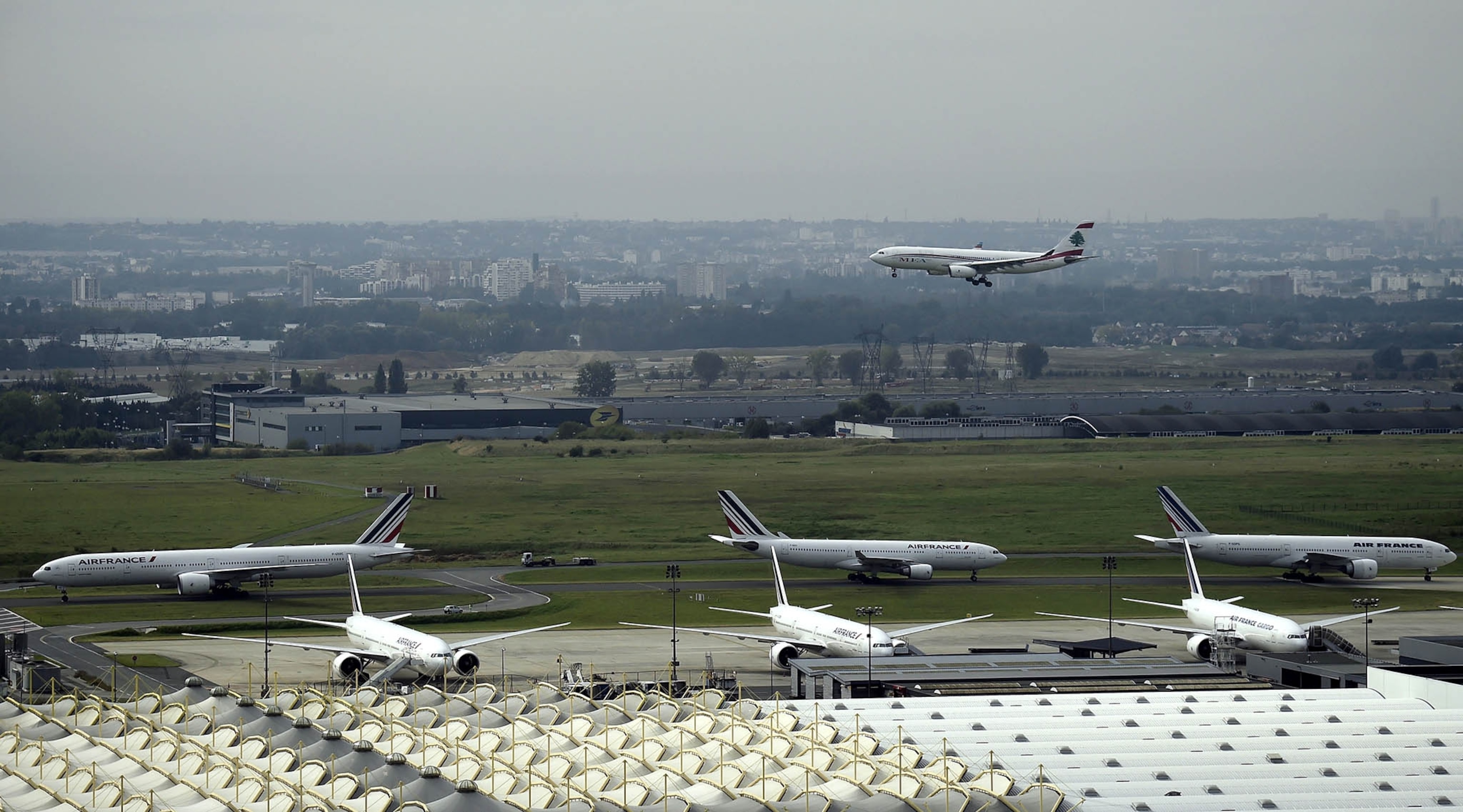
Oil Prices Plunged—Why Haven't Airfares and Some Home Energy Bills?
Low energy prices won't necessarily reduce prices for certain consumers.
Now that the price of crude oil has sunk to a six-year low, gasoline is much cheaper, but airfares and some home energy bills still seem head-scratchingly high. Why isn't everyone seeing relief?
The cost of jet fuel, for example, has fallen a whopping 43 percent on average worldwide from the price a year ago. Don't rush just yet, though, to book that flight to Fiji. Airfares have barely budged, and in places such as the U.S. Northeast and the United Kingdom, home bills for electricity and heat are as high as ever.
The stubborn prices are prompting stern words from politicians. "It is curious and confounding that [air] ticket prices are sky-high and defying economic gravity," said New York Senator Chuck Schumer last month, urging a federal investigation.
In the U.K., Labour Party leader Ed Miliband called for new government powers to force cuts in gas and electricity bills. Britons' combined annual gas and electric bills in 2014 were up 3 percent, or 39 pounds ($59), from last year, even though natural gas prices fell there as well as in the U.S.
Low oil and gas prices have also had limited benefit for U.S. New Englanders: The region continues to see price spikes on electric bills, with some customers reporting totals 50 percent higher than last year's.
Certainly, low oil prices have delivered relief to many drivers. U.S. gasoline prices are at their lowest point since 2009, and fuel prices in Europe are down too. In Hawaii, the most oil-dependent U.S. state, electric bills are lower than they have been in four years, and so are heating bills for many households, particularly in the Northeast, that rely on oil-burning furnaces.
A Lag on Some Electricity and Heating Bills
The relief has not been felt across the board. Some oil heat consumers bought their fuel for the winter in advance, so they are paying a higher price, said John Huber, president of the National Oilheat Research Alliance. And in Massachusetts, low energy prices don't matter, because regulations compel utilities to contract for power six months in advance, according to Jake Navarro, spokesperson for National Grid.
"Anything that happened after we purchased our electricity won't have an effect on customers' bills for this season," he said.
New England is also hampered by a lack of pipeline capacity to move natural gas, so when heating and electricity demand spikes, so do prices. Navarro said that last season's polar vortex, and the energy demand associated with it, led to higher market prices going into this winter. The region has some oil-fired power generation too, but not enough to make a dent in the dependence on natural gas.
In the U.K., pressure is on utilities and gas suppliers to cut rates after Chancellor George Osborne promised a Treasury investigation into whether customers were seeing fair prices, tweeting that it's "vital" price drops get "passed on to families." The average household in Britain pays upwards of 1,200 pounds ($1,820) per year for electricity and gas.
Gas and electric supplier E.ON was the first company to respond when it announced Tuesday that it would cut its gas charges by 3.5 percent, earning a lukewarm response. The price-comparing service uSwitch called the development "well overdue," while regulator Ofgem said it was "a small step in the right direction."
Airfares: Why No Break?
Plunging prices at the pump create a disconnect for consumers who see unchanged airfares and fees, says Charlie Leocha, chairman of the consumer advocacy group Travelers United. Despite the "giant windfall" for airlines, Leocha says, "they're doing nothing but doubling down and coming up with some new fees."
To protect against climbing fuel costs, most airlines have hedging strategies that lock in prices for anywhere from three months to three years, so they aren't yet getting the full benefit of cheap oil.
American Airlines is an exception. After deciding in 2013 to stop hedging its fuel costs, it sold off the last of its hedges last year. "When the price of oil drops like it is now, it goes right to the bank for them," Loecha says.
American referred questions to the industry group Airlines for America, which cited higher operating expenses, investment in new planes, and other reasons that lower fuel costs do not necessarily translate into cheaper fares.
"Until we can adequately reduce debt, return cash to shareholders, renew our fleets, and share profits with employees, there is work left to be done," said spokesperson Melanie Hinton via email.
Leocha says airlines are "doing good things" with the extra money, but they're doing them "for everyone except the consumer."
Airfares may eventually come down—a little. The International Air Transport Association predicts a decline of 5.1 percent or more in 2015. That's "almost embarrassingly little for the airlines to give back to the consumers," Leocha says.
Because industry mergers have cut competition, he says, "airlines really don't have to listen to customers anymore, and they're not. They're listening to their bottom line."
On Twitter: Follow Christina Nunez and get more environment and energy coverage at NatGeoGreen.
The story is part of a special series that explores energy issues. For more, visit The Great Energy Challenge.